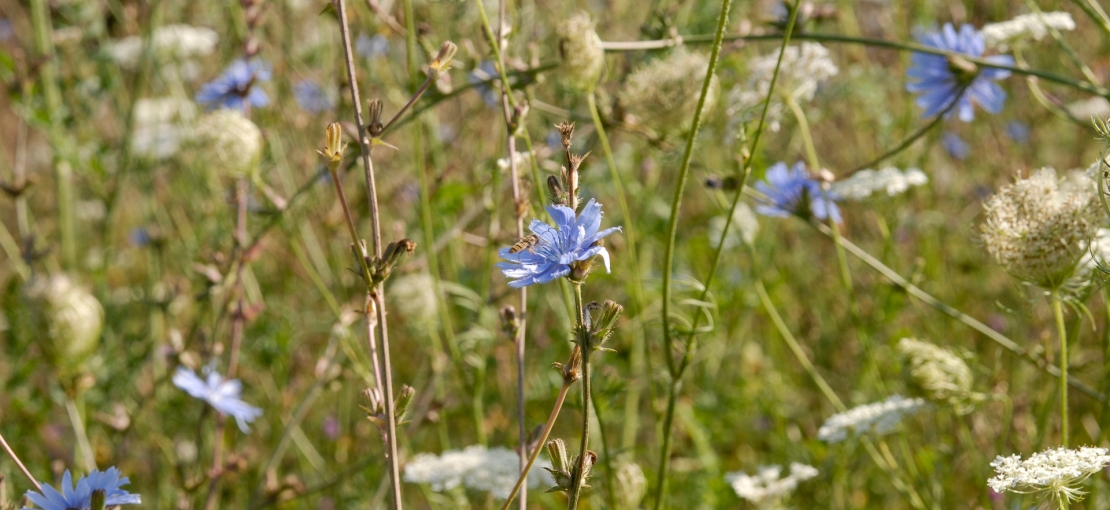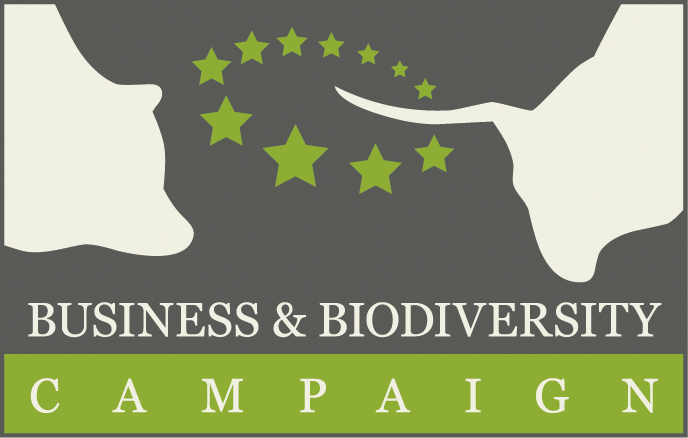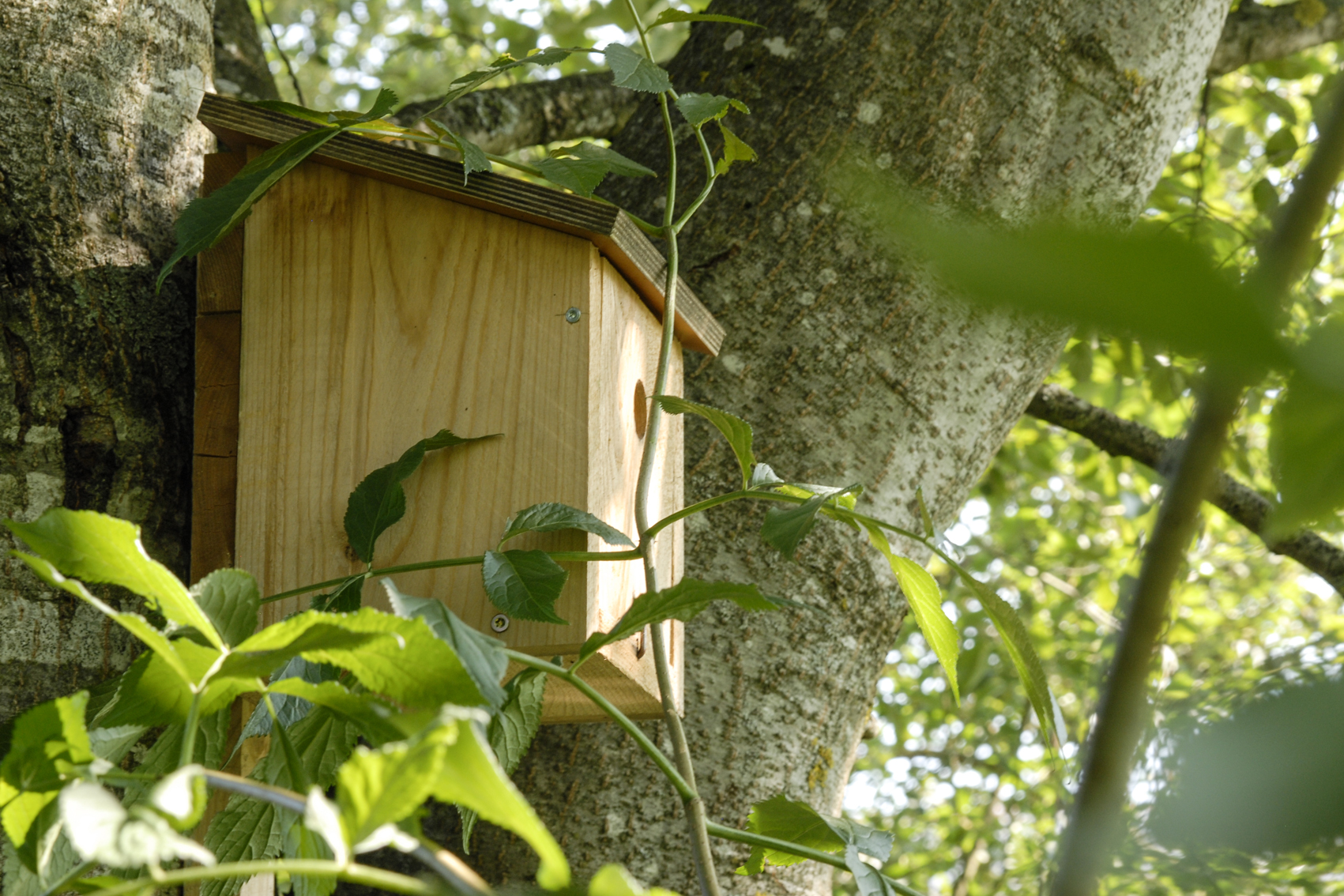
Pioneer in Biodiversity Checks
Biodiversity concept systematically implemented

Expert concept systematically implemented
We then commissioned an external consultancy agency to create a Biodiversity Concept for our Tettnang-Obereisenbach location, and have gone on to systematically implement the measures they drew up.
We have already planted bushes and fields of wild flowers, re-naturalized a stream and put up nesting boxes. We also regularly eliminate the aggressive, non-native "Himalayan Balsam" on our premises and will be greenifying our façade. Raising awareness among our employees and business partners on the issue of biodiversity is also included in the concept.

Potential negative effects in the supply chain
Direct negative effects can arise in our supply chain - such as the sealing of surfaces and through this a loss of habitats. However, indirect displacement effects may also occur. For example, the cultivation of certified raw fiber prevents the clearing of rain forests, and yet when this cultivation competes for food and fodder production it then, in turn, forces small farmers of the region to clear rain forest to compensate for their loss.
Our goal is to have greater impact on the supply chain
However, until now we have had little influence on biodiversity in the supply chain. Indirectly, we are trying to avoid negative influences through the use of environmentally friendly materials that are chosen in accordance with our Green Shape criteria.
Our goal for the future is to also include suppliers in our biodiversity concept. To do this, we hope to formulate approaches that we have developed in the Biodiversity Check that provide us with concrete objectives, measures and indicators which will allow us to measure our success.






